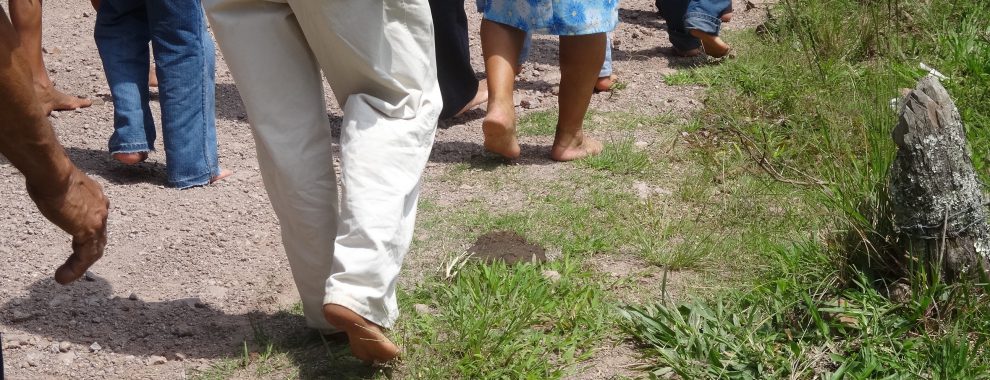Reading this morning’s Gospel, I was struck by these words the Jewish leaders asked John the Baptist: “Who are you?”
John denies all the titles that some people wanted to give him: the Christ, Elijah, the Prophet. They are not who he is? He is but a voice crying in the desert, “Make straight the way of the Lord.”
Deacon Greg Kendra, in his reflection for today in Give Us This Day, writes:
“But what about us? Encountering this passage, we might ask ourselves: “Who am I?” How do I fit into God’s plan? How do I see myself? Am I a voice? Am I a witness? Am I merely a spectator in the story of salvation? Or am I a disciple compelled to act—to give, to love, to proclaim, to sacrifice?”
But what about me?
Who am I?
As often happens when a passage speaks to my heart, I wrote in my journal:
A sinner, inadequate, but used by God, not so much to make the paths straight but to open spaces for grace. so that people can recognize the loving presence of God in their midst.
During a retreat in 2021, as I looked over my life and my ministry, I began to identify my mission as opening spaces for grace. I do this out of my vulnerability, my weaknesses, which open me to others in their joys and in their pains. But i think and pray that this is central to my diaconal ministry.
I have found Honduras full of contradictions and paradoxes. There are hard-working people, but the political and economic system make it difficult for them to thrive. They are a people with a deep piety, but it is all too often focused on sinfulness; I fear that this makes it hard for many to see the grace of God active among them, within them.
Most of all I see a people who have been put down so much in the past by the powerful that they don’t always recognize their dignity, their capabilities, and their capacity for good and for transformation.
Thus, this deacon comes and tries to open spaces for grace.
How? by listening, by calling out gifts, by noting the good, by giving thanks for what they do and who they are, by accompanying them, by being present with them.
I sometimes am surprised by what I do, but I think it is inspired by my desire to open a space for grace.
Yesterday, I accompanied the pastor at a funeral in a rural village, in the porch of a house. It was well-attended, with people from several villages in attendance. I was asked by the pastor to preach and tried to combine the feast of Mary, Mother of God, the new year, and the death of an older man who left behind a wife, several children, and about twenty-five grandkids.
After the Mass, as the family shared coffee and bread, a woman I recognized came up to me, just to get a hug. She was a daughter-in-law. I was touched by how she just approached me; we hugged and spoke briefly. I am surprised at her openness to me. What a grace for me – and I hope for her.
This morning, on the way to the parish center, I gave a ride to a woman carrying a little baby and accompanied by a six-year-old. I got out of the car to help the woman get down out of the truck. I noticed that the other boy was looking at a puddle of water under the truck. He seemed concerned that something was leaking. I showed him that it was just a stream coming down the hill that passed under the car. I noted to him and to his mother that he was a very observant young man.
How important it is not only to accompany people in their sorrow but to help people, especially children, recognize their goodness and their gifts.
These people help make me who I am.
I am grateful to God and to them.





